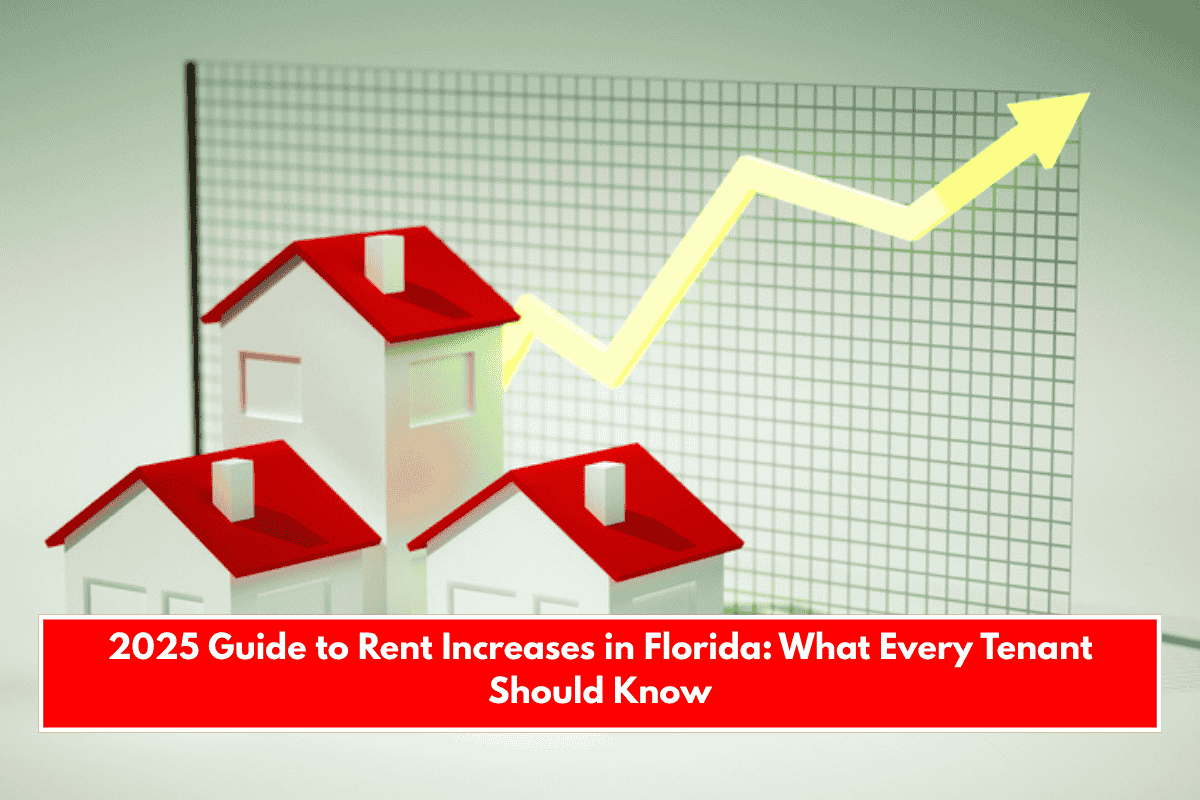Navigating rent increases in Florida can be challenging, especially as the state continues to experience high demand for rental housing and evolving legal requirements. Here’s what every tenant should know about rent increases in Florida in 2025.
No Statewide Rent Control: What This Means for Tenants
Florida does not have statewide rent control. This means landlords are generally free to set rental rates and increase rent as they see fit, provided they follow proper notice requirements and do not violate anti-discrimination or anti-retaliation laws. Local governments are also prohibited from enacting their own rent control ordinances except in rare, declared emergencies, which require strict conditions and voter approval.
When Can Landlords Raise Rent?
- Fixed-Term Leases:
Landlords cannot increase rent during the term of a fixed lease (for example, a 12-month lease), unless the lease specifically allows for mid-term increases. Rent can only be raised at renewal, and any increase must be communicated before the new lease term begins. - Month-to-Month Leases:
For tenants on a month-to-month lease, landlords may raise rent more frequently, but only after providing the legally required notice.
Notice Requirements for Rent Increases
The amount of notice a landlord must provide depends on the type of lease:
| Lease Type | Minimum Notice Required | Notes |
|---|---|---|
| Month-to-Month | 15 days | Written notice before the end of the rental period. |
| 6–12 Month Lease | 30 days | Written notice specifying new rent and effective date. |
| Year-to-Year Lease | 60 days (in some areas) | Some localities require 60 days for increases over 5%. |
Always check your lease and local ordinances, as some cities (e.g., Miami-Dade) may require longer notice periods for significant increases.
How Much Can Rent Be Increased?
- No Cap on Amount:
There is no legal limit to how much a landlord can increase rent in Florida. The market, not the law, determines the amount. However, experts expect a typical rent increase in 2025 to range between 3% and 10%, depending on inflation, demand, and local trends. - Affordable Housing Exception:
A new law effective July 1, 2025, prohibits landlords of affordable housing units—who receive federal, state, or local funding or tax incentives for that status—from raising rent during the term of the lease. This protection only applies to leases of 13 months or less entered into on or after July 1, 2026, and does not prevent increases at renewal.
Legal Protections for Tenants
- Anti-Discrimination:
Landlords cannot raise rent based on race, color, national origin, religion, sex, familial status, disability, sexual orientation, gender identity, or marital status. Violations can be reported to the U.S. Department of Housing and Urban Development or the Florida Commission on Human Relations. - Anti-Retaliation:
It is illegal for landlords to increase rent in retaliation for tenants exercising their legal rights, such as reporting code violations or requesting repairs. Increases within six months of a complaint may be presumed retaliatory.
What To Do If You Receive a Rent Increase Notice
- Check the Notice:
Confirm that the notice period matches your lease type and local laws. - Review Your Lease:
Ensure the increase is not prohibited by your current agreement. - Document Everything:
Keep copies of all communication and notices. - Seek Help if Needed:
If you suspect discrimination or retaliation, contact a tenant advocacy group or housing attorney.
Key Takeaways for 2025
- Florida allows landlords to raise rent without a cap, provided proper notice is given and increases are not discriminatory or retaliatory.
- Fixed-term leases protect tenants from mid-lease increases unless otherwise specified.
- Affordable housing tenants may have new protections starting in 2025, but only under specific conditions.
- Always check your lease and local laws, as some cities require more notice for larger increases.
- If you believe your rights are being violated, seek legal advice or contact local tenant organizations.
Staying informed and proactive is the best defense against unexpected or unfair rent increases in Florida’s dynamic rental market.
Sources:
- https://www.doorloop.com/laws/florida-rent-control-laws
- https://rentpost.com/resources/article/raise-rent-laws-in-florida/
- https://www.flsenate.gov/Session/Bill/2025/365/Analyses/h0365c.CIV.PDF
- https://www.amgrents.com/kissimmee-property-management-blog/rent-increase-laws-in-florida-that-landlords-need-to-be-aware-of
- https://www.steadily.com/blog/rent-increase-laws-regulations-florida














